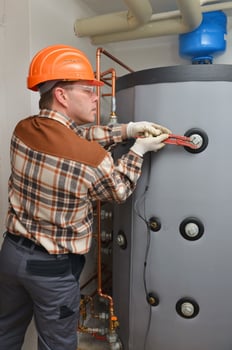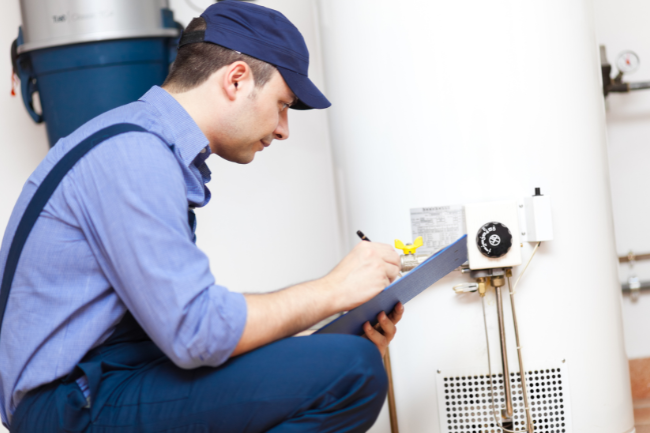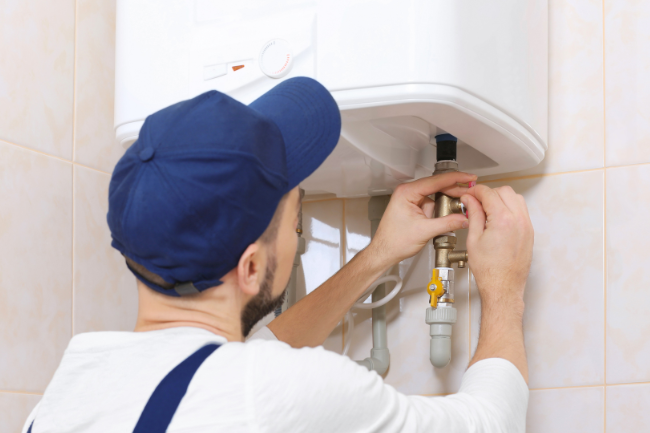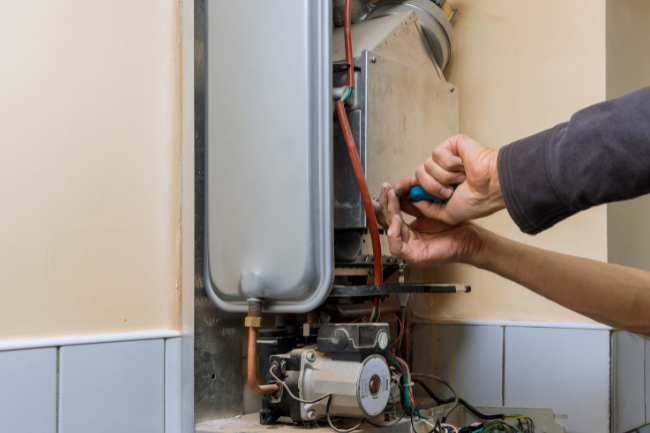Is Water Heater Repair Worth the Money?
Posted by William Heinselman on
 Day to day, you probably don’t think about your home water heater all that much. Who does? Water heaters typically fly under the plumbing radar - that is, until they fail. When this happens, you’re going to be faced with some tough decisions.
Day to day, you probably don’t think about your home water heater all that much. Who does? Water heaters typically fly under the plumbing radar - that is, until they fail. When this happens, you’re going to be faced with some tough decisions.
Should I have a professional technician repair the unit, or does it need replacing altogether? Is there anything I can do to repair my own water heater? Is repairing my heater even worth the money?
These are all things you may find racing through your mind when a heater unit fails. To find answers to these questions, you must first consider why your heater failed, and then evaluate the severity of the problem to decide whether to try a DIY fix or to call a professional.
Context: Diagnosing Your Water Heater Problem
Different water heater issues call for different solutions. For instance, if your unit’s heating element or burner has failed, you can usually repair the unit at no great cost. However, if rust within your unit and other corrosive elements have caused severe heater damage, you’re more than likely going to replace the unit.
Other common water heater problems, which may be resolved for a relatively low cost, include:
- Broken unit thermostat
- Dead pilot lights
- Stuck water valve sticks
- Tripped circuit breakers
When factoring repair costs for your home water heater, there are also a number of things you may have never considered that can raise the cost beyond what’s expected. This includes things like physical location and heater size, venting systems, drainage pipes and other nearby plumbing fixtures.
These are all things that you may have to take into account or upgrade when repairing/replacing your water heater. If your water heater is in close proximity to walls or other utilities, you may also have to have some work done on your home to remove the water heater unit. As circumstances vary, consider having a plumber come and inspect your unit, and provide cost estimates for the job.
Water Heater Repair Costs Explained
Generally, if your water heater unit is badly damaged, getting it inspected by a professional is your best option. Heavily corroded or leaking water heaters aren’t exactly problems you can brush off, and repair or replacement is almost always required for damages like these.
In these circumstances, however, you can make upgrade decisions which may offer long-term home energy savings. Tankless or solar water heaters, while requiring greater initial investment than conventional water heaters, consume a fraction of the energy that conventional models do annually.
To provide an option more efficient than conventional heaters, but less expensive than tankless, many water heater manufacturers now offer high-efficiency models of conventional heaters. These units can save homeowners as much as 20% of energy cost, and come with a lower price tag than comparable tankless models.
Over time, these energy savings pay for the units themselves, and can continue to conserve energy for years to come. If you have to replace your water heaters due to severe corrosion, rust or leaking, consider making the switch to more efficient models if funds allow it. Additional things to consider when upgrading your home water heater include:
- Total gallon capacity
- Heater dimensions (size is a common factor in water heater placement)
- Energy efficiency rating (use this to find the most efficient model in your pricing range)
Extending the Life of Your Water Heater
Of course, you can avoid the water repair/replace dilemma altogether by caring for your conventional unit proactively. For instance, flushing your water heater (which you can actually do yourself, using simple DIY draining methods) once annually can prevent significant gunk/material buildup. Also consider inspecting your unit’s anode rod along the same schedule, as these rods collect corrosion and can deteriorate with time.
If your water heater cannot be repaired or cleaned with DIY methods, or if more severe problems call for unit replacement, there’s not much you can do but make the investment. However, by switching to more efficient units, or tankless/solar water heater types, you can see long-term energy savings over time, which pay off the initial cost. Typically, upgrading your water heater to a more energy efficient model will always be worth the money, if you have the up-front capital to do so.
Topics: Water Heaters







